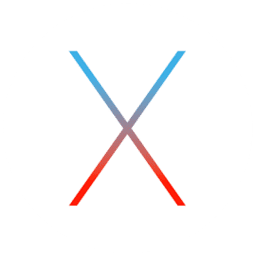There are some people who want a fresh operating system and you can install it we are telling you the method. But what if you want to keep all your data and just reinstall the OS, that is also possible by just skipping this step and moving on to number 3. Hello All - Refer the attached diagram. No LACP or VPC configured in the switches Question: On which Interface of SWITCH-1 the MAC address of the Windows Server (configured with NIC Teaming) will be learned. In my setup, the MAC f4c9.d3c4.3fd7 is learned alternative between SWITCH-1 Ports Gig 1/5. When you first start using a brand-new Mac or performed a clean install of OS X, you are presented with Setup Assistant, allowing you to create the first user account and specify some initial information, such as keyboard layout and locale. Under certain circumstances, it.
- Installation For Social Media Breakup Coordinator(wip) Mac Os X
- Installation For Social Media Breakup Coordinator(wip) Mac Os Operating System
- Installation For Social Media Breakup Coordinator(wip) Mac Os X
For more information, see Create bootable media. Install the OS from bootable media. To install the OS, insert the bootable media, and then power on the computer. Support for cloud-based content. Starting in version 2006, bootable media can download cloud-based content. For example, you send a USB key to a user at a remote office to reimage. And once you pass it, it’s time for a socia media break-up. Here is a helpful guide to breaking up with a former significant other, friend or brand on social media. For many of us who have social media accounts, this was our first.; that means we’ve had our.
Applies to: Configuration Manager (current branch)
Bootable media only includes the boot image and a pointer to the task sequence. It downloads the OS image and other referenced content from the network. Since the bootable media doesn't contain much content, you can update the task sequence and most content without having to replace the media.
Deploy operating systems over the network with boot media in the following scenarios:
Complete the steps in one of the OS deployment scenarios and then use the following sections to use bootable media to deploy the OS.
Configure deployment settings
When you use bootable media to start the OS deployment process, configure the task sequence deployment to make the OS available to the media. Set this option on the Deployment Settings page of the deployment. For the Make available to the following setting, select one of the following options:
Configuration Manager clients, media, and PXE
Only media and PXE
Only media and PXE (hidden)

For more information, see Deploy a task sequence.
Create the bootable media
When you create bootable media, specify whether it's a USB flash drive or CD/DVD set. The computer that starts the media must support the option that you choose as a bootable drive. For more information, see Create bootable media.
Install the OS from bootable media
To install the OS, insert the bootable media, and then power on the computer.
Support for cloud-based content
Starting in version 2006, bootable media can download cloud-based content. For example, you send a USB key to a user at a remote office to reimage their device. Or an office that has a local PXE server, but you want devices to prioritize cloud services as much as possible. Instead of further taxing the WAN to download large OS deployment content, boot media and PXE deployments can now get content from cloud-based sources.
For more information, see Bootable media support for cloud-based content.
Next steps
Boot Camp Control Panel User Guide
After you use Boot Camp Assistant to install Windows on your Intel-based Mac, you can set the default operating system to either macOS or Windows. The default operating system is the one you want to use when you turn on or restart your Mac.
Installation For Social Media Breakup Coordinator(wip) Mac Os X
Set the default operating system
In Windows on your Mac, click in the right side of the taskbar, click the Boot Camp icon , then choose Boot Camp Control Panel.
If a User Account Control dialog appears, click Yes.
Select the startup disk that has the default operating system you want to use.
If you want to start up using the default operating system now, click Restart. Otherwise, click OK.
You can’t change your startup volume to an external drive while you’re using Windows.
To learn how to change the default operating system using macOS, see Get started with Boot Camp.
Restart in macOS
In Windows on your Mac, do one of the following:
Installation For Social Media Breakup Coordinator(wip) Mac Os Operating System
Restart using Startup Manager: Restart your Mac, then immediately press and hold the Option key. When the Startup Manager window appears, release the Option key, select your macOS startup disk, then press Return.
If you’re using a Mac notebook computer with an external keyboard, make sure you press and hold the Option key on the built-in keyboard.
Restart using Boot Camp Control Panel: Click in the right side of the taskbar, click the Boot Camp icon , then choose Restart in macOS.
This also sets the default operating system to macOS.
For more information about restarting in macOS, see the Apple Support article Restart your Mac in macOS or Windows.